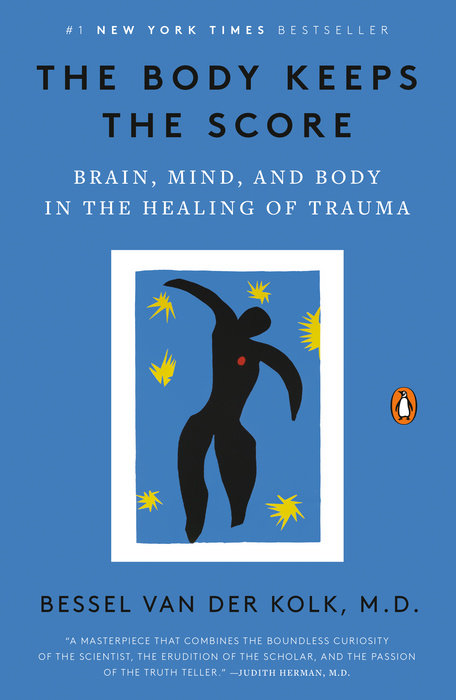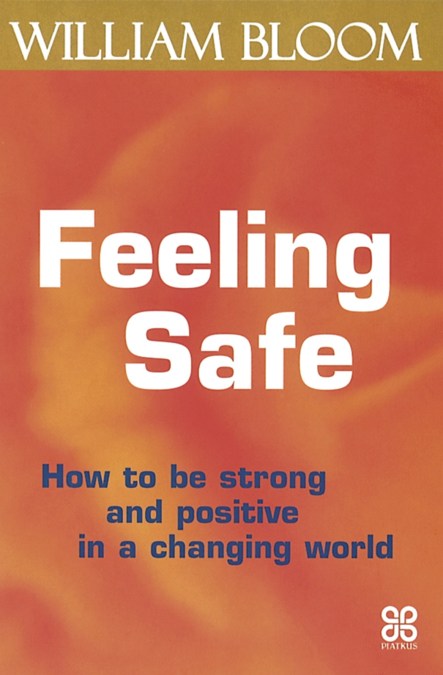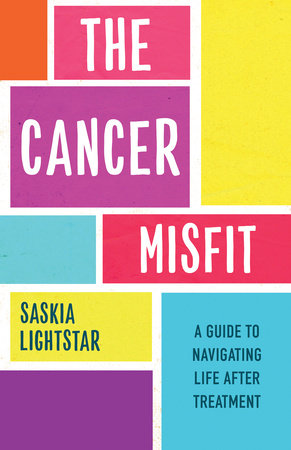“People treat intuition like it’s a dirty word, but it’s actually one of the body’s survival mechanisms,” says Dr. Antoine Bechara.
YOU MIGHT ALSO LIKE
CLEAR ALL
BY TOPIC
BY TEACHER
BY TYPE
FILTER

TOPIC
- Personal Development (79)
- Talk Therapy (77)
- Anxiety (62)
- Intuition (60)
- Depression (57)
- Self-Mastery (56)
- Physical Health (53)
- Self-Healing (44)
- Living with Illness (43)
- Stress Management (40)
- Stress (36)
- Illness and Injury (35)
- Athlete Well-Being (34)
- Chronic Pain (34)
- Resilience (34)
- Honoring Emotion (33)
- Self-Care (33)
- Finding Meaning (31)
- Meditation (30)
- Anger (28)
- Neuroplasticity (28)
- Self-Discovery (28)
- Well-Being (28)
- Brain Health (26)
- Chronic Health Conditions (26)
- Mindfulness (25)
- Trauma Healing (25)
- Relationship Challenges (24)
- Self-Development (24)
- Fear (23)
- Habit Formation (23)
- Diet and Nutrition (22)
- Imagination and Creativity (21)
- Awareness (20)
- Decision Making (20)
- Self-Reflection Practices (20)
- The Feldenkrais Method (20)
- Women’s Well-Being (20)
- Endurance (19)
- Facing Own Death (19)
- Fatigue (19)
- Exercise (18)
- Handling a Loved One’s Illness (18)
- Integrative Medicine (18)
- Offering Support to Others (18)
- Parenting (18)
- Positive Thinking (18)
- Trauma (18)
- Identity (16)
- Memoir (16)
- Work Challenges (16)
- Autoimmune Disease (15)
- Communication Skills (15)
- Emotional Intelligence (EQ) (15)
- Healing Approaches (15)
- PTSD (15)
- Self-Esteem (15)
- Self-Limiting Beliefs (15)
- Authenticity (14)
- BIPOC Well-Being (14)
- Goal Setting (14)
- Grief (14)
- Happiness (14)
- Mindfulness Practices (14)
- Body Image (13)
- Gratitude (13)
- Human Potential (13)
- Psychology (13)
- Search for Purpose (13)
- Self-Love (13)
- Somatic Practices (13)
- Addiction (12)
- Breathwork (12)
- Caregiver Well-Being (12)
- Child’s Emotional Growth (12)
- Courage (12)
- Empowerment (12)
- Science and Spirituality (12)
- Self-Compassion (12)
- Transformation (12)
- Aging (11)
- Consciousness (11)
- Entrepreneurship (11)
- Habits of Mind (11)
- Healthy Eating (11)
- Managing Energy (11)
- Presence (11)
- Romantic Relationships (11)
- Self-Acceptance (11)
- Somatic Experiencing (11)
- Black Well-Being (10)
- Embodiment (10)
- Inner Peace (10)
- Motivation (10)
- Negative Self-Talk (10)
- Vulnerability (10)
- Anger Management (9)
- Buddhism (9)
- Chronic Anxiety (9)
- Cognition (9)
- Criticism and Rejection (9)
- Death and Dying (9)
- Life Challenges (9)
- Memory (9)
- Mental Health Challenges (9)
- Perception (9)
- Self-Control (9)
- Self-Worth (9)
- Shame (9)
- Spirituality and Health (9)
- Suicide (9)
- Yoga (9)
- Altered States (8)
- Asking for Help (8)
- Child’s Trauma (8)
- Children’s Well-Being (8)
- Confidence (8)
- Dementia (8)
- Energy Healing (8)
- Fellowship and Community (8)
- Growth Mindset (8)
- Inner Strengths (8)
- Joy (8)
- Longevity (8)
- Neurodiversity (8)
- Peak Performance (8)
- Self-Reliance (8)
- Soul Mission (8)
- Spiritual Healing (8)
- Visualization (8)
- Willpower (8)
- Acceptance (7)
- Body Positivity (7)
- Compassion (7)
- Dysfunctional Childhood (7)
- Epigenetics (7)
- Focus (7)
- Insomnia (7)
- Kindness (7)
- Mindfulness Meditation (7)
- Neuropsychology (7)
- Nutritional Medicine (7)
- Psychedelic Research (7)
- Self-Actualization (7)
- Setting Limits and Boundaries (7)
- Situational Depression (7)
- Speaking Your Truth (7)
- Sudden Weight Change (7)
- Work-Life Balance (7)
- Addiction Recovery (6)
- Guilt (6)
- Intention (6)
- Movement Meditation (6)
- Polyvagal Theory (6)
- Positive Self-Talk (6)
- Psychic Abilities (6)
- Self-Realization (6)
- Self-Reckoning (6)
- Sex (6)
- Suffering (6)
- Values (6)
- ADD/ADHD (5)
- Clinical Depression (5)
- Connection (5)
- Connection with Nature (5)
- Curiosity (5)
- Divorce and Breakup (5)
- Empathy (5)
- Friendship (5)
- Genetics (5)
- Guided Meditation (5)
- Hope (5)
- Inner Life (5)
- Loss of Appetite (5)
- Love (5)
- Men’s Well-Being (5)
- Psilocybin (5)
- Quantum Physics (5)
- Spiritual Awakening (5)
- Spiritual Growth (5)
- Spiritual Life (5)
- Trauma-Informed Therapy (5)
- Veteran Well-Being (5)
- Accepting Love (4)
- Activism/Service (4)
- Adaptability (4)
- Autism (4)
- Belonging (4)
- Bodywork (4)
- Chronic Fatigue (4)
- Cognitive Behavioral Therapy (4)
- Community Healing (4)
- Compassion Fatigue (4)
- Eating Disorders (4)
- Failure (4)
- Family Dynamics (4)
- Female Empowerment (4)
- Holism (4)
- Intimacy (4)
- Journaling (4)
- Letting Go (4)
- Lifestyle Medicine (4)
- LSD (4)
- Medical Intuition (4)
- Near-Death Experience (4)
- Optimism (4)
- Past Lives and Reincarnation (4)
- Performance Anxiety (4)
- Problem Solving (4)
- Psychoanalysis (4)
- Racial Healing (4)
- Religious Experience (4)
- Self-Pressure (4)
- Sleep (4)
- Trust (4)
- Work Relationships (4)
- Young Adult Well-Being (4)
- Afterlife (3)
- Alcohol Addiction (3)
- Archetypes (3)
- Astral Projection (3)
- Attachment Theory (3)
- Ayurveda (3)
- Betrayal (3)
- Biohacking (3)
- Child’s ADD/ADHD (3)
- Child’s Anxiety (3)
- Cognitive Psychology (3)
- Creative Well-Being (3)
- Disconnection (3)
- Dreamwork (3)
- Energy Balancing (3)
- Faith (3)
- Generosity (3)
- Global Challenges (3)
- Higher Calling (3)
- Identity Shifts (3)
- Inner Child (3)
- Intergenerational Trauma (3)
- Life Force Energy (3)
- Loneliness (3)
- Marriage (3)
- Military to Civilian Re-entry (3)
- Motherhood (3)
- Parapsychology (3)
- Play (3)
- Psychedelic-Assisted Therapy (3)
- Rest (3)
- Sexual Health (3)
- Shadow (3)
- Social Anxiety (3)
- Stoicism (3)
- Tibetan Buddhism (3)
- Transcendent Experience (3)
- Visions and Hallucinations (3)
- Weight Concerns (3)
- Wholeness (3)
- Abandonment (2)
- Biofeedback (2)
- Body Mapping (2)
- Burnout (2)
- Cannabis/CBD (2)
- Chakras (2)
- Changes in Libido (2)
- Child’s Challenging Behavior (2)
- Collective Trauma (2)
- Competition (2)
- Death or Loss of a Loved One (2)
- Digital Life (2)
- Disabled Well-Being (2)
- Doubt (2)
- Drug Addiction (2)
- Forest Bathing (2)
- Forgiveness (2)
- Functional Medicine (2)
- Goddess (2)
- Handling a Child’s Illness (2)
- Hospice (2)
- Hypnosis (2)
- Inflammation (2)
- Integrity (2)
- Interdependence (2)
- Jealousy/Envy (2)
- Jungian Analysis (2)
- Kids and Sports (2)
- Leadership (2)
- Learning Styles (2)
- LGBTQIA Well-Being (2)
- Light Therapy (2)
- Living as an Empath (2)
- Loss of Partner/Spouse (2)
- Manifestation (2)
- Masculine/Feminine Dynamics (2)
- Massage (2)
- MDMA (2)
- Numerology (2)
- OCD (2)
- Othering (2)
- Panic Attacks (2)
- Passion (2)
- Physical Therapy (2)
- Post-Traumatic Growth (2)
- Prayer (2)
- Psychological Approaches (2)
- Race and Gender (2)
- Racial Identity (2)
- Racism (2)
- Relationship with Money (2)
- Relationship with Time (2)
- Rolfing (2)
- Self-Discipline (2)
- Self-Expression (2)
- Sleep Disorders (2)
- Spiritual Development (2)
- Spiritual Practices (2)
- Storytelling (2)
- Synchronicity (2)
- Synesthesia (2)
- Telepathy (2)
- Toxic Relationships (2)
- Zen Buddhism (2)
- Zen Meditation (2)
- AAPI Well-Being (1)
- Academic Struggles (1)
- Access to Education (1)
- Acupressure (1)
- Affirmations (1)
- Alexander Technique (1)
- Anorexia (1)
- Art Therapy (1)
- Awe (1)
- Building Character (1)
- Building Culture (1)
- Challenges with Teens (1)
- Child’s Autism (1)
- Clairvoyance and Precognition (1)
- Codependency (1)
- Compassion Meditation (1)
- Conscious Evolution (1)
- Cross-Cultural Dynamics (1)
- Dark Night of the Soul (1)
- Death-Positive Movement (1)
- Despair (1)
- Domestic Abuse (1)
- Dream Analysis (1)
- Ego (1)
- Ego Transcendence (1)
- Energy Healing for Animals (1)
- Environmental Justice (1)
- Family Acceptance (1)
- Fate (1)
- Feminism (1)
- Foster Parenting (1)
- Gender Identity (1)
- God (1)
- Grace (1)
- Guided Imagery (1)
- Heartmath (1)
- Herbal Supplementation (1)
- Highly Sensitive People (1)
- Holotropic Breathwork (1)
- Indigenous Healing Approaches (1)
- Indigenous Well-Being (1)
- Infidelity (1)
- Inspiration (1)
- Karma (1)
- Latinx Well-Being (1)
- LGBTQIA Children (1)
- Lovingkindness Meditation (1)
- Mantra Meditation (1)
- Mediums (1)
- Mentoring (1)
- Mysticism (1)
- Narcissism (1)
- Naturopathy (1)
- Nightmares (1)
- Oneness (1)
- Past Life Regression (1)
- Performance Pressure (1)
- Personality Disorders (1)
- Personality Typing (1)
- Positive Psychology (1)
- Postpartum Depression (1)
- Pregnancy and Childbirth (1)
- Productivity (1)
- Psychedelic Journey (1)
- Qi (1)
- Quitting Your Job (1)
- Racial Discrimination (1)
- Regret (1)
- Reproductive Health (1)
- Rosen Method (1)
- Sacred Feminine (1)
- Sexuality (1)
- Social Justice (1)
- Social Media Addiction (1)
- Social Psychology (1)
- Social Responsibility (1)
- Spiritual Crisis (1)
- Spiritual Fasting (1)
- Subconscious (1)
- Superfoods (1)
- Sustainability (1)
- Sutras (1)
- T’ai Chi (1)
- Taoism (1)
- Tapping/EFT (1)
- The Unconscious (1)
- The Yips (1)
- Time Management (1)
- Transcendental Meditation (1)
- Unfulfilled Career (1)
- Veganism (1)
- Vegetarianism (1)
- Vitamin Supplementation (1)
- Wake-Up Calls (1)
- Work Ethic (1)
- Yoga Therapy (1)
- Youth Activism (1)
FILTER

TEACHER
- Rick Hanson (8)
- Bernie S. Siegel (7)
- Donna Jackson Nakazawa (7)
- Daniel J. Siegel (6)
- Gabor Maté (6)
- Joe Dispenza (6)
- Peter A. Levine (6)
- Stephen Porges (6)
- Andrew Weil (5)
- Colette Baron-Reid (5)
- Daniel Amen (5)
- Helen Fisher (5)
- John Sarno (5)
- Lisa Feldman Barrett (5)
- Sonia Choquette (5)
- Christine Caldwell (4)
- Dan Buettner (4)
- Daniel Goleman (4)
- Eckhart Tolle (4)
- Judith Orloff (4)
- Annie Hopper (3)
- Chalene Johnson (3)
- don Miguel Ruiz (3)
- Franz Alexander (3)
- Gary Zukav (3)
- Jon Kabat-Zinn (3)
- Karla McLaren (3)
- Kris Carr (3)
- Lorin Roche (3)
- Oliver Sacks (3)
- Robin Carhart-Harris (3)
- Amishi Jha (2)
- Andrew Solomon (2)
- Anita Moorjani (2)
- Arnold Mindell (2)
- Ashley Neese (2)
- Bruce Lipton (2)
- C. S. Lewis (2)
- Caroline Myss (2)
- Connie Zweig (2)
- Cyndi Dale (2)
- David Perlmutter (2)
- David Spiegel (2)
- Debbie Ford (2)
- Jack Canfield (2)
- Jane E. Brody (2)
- Jean Shinoda Bolen (2)
- Joan Borysenko (2)
- JoAnna Hardy (2)
- Judson Brewer (2)
- Kenneth Pelletier (2)
- Larry Dossey (2)
- Lisa Wimberger (2)
- Marcus Aurelius (2)
- Mona Lisa Schulz (2)
- Nicole Sachs (2)
- Reginald Ray (2)
- Ruby Wax (2)
- Shakti Gawain (2)
- Terri Cole (2)
- The Dalai Lama (2)
- Wim Hof (2)
- Alain de Botton (1)
- Albert Einstein (1)
- Alice Miller (1)
- Anat Baniel (1)
- angel Kyodo williams (1)
- Anna Lembke (1)
- Anodea Judith (1)
- Audre Lorde (1)
- Belleruth Naparstek (1)
- Bessel van der Kolk (1)
- Biet Simkin (1)
- Blaise Aguirre (1)
- Brendon Burchard (1)
- Brené Brown (1)
- Brian Tracy (1)
- Brynn Putnam (1)
- Charles Tart (1)
- Chip Conley (1)
- Christiane Northrup (1)
- Dacher Keltner (1)
- Dave Asprey (1)
- David Eagleman (1)
- Deena Metzger (1)
- Dilip Jeste (1)
- Don Hanlon Johnson (1)
- don Jose Ruiz (1)
- Dondi Dahlin (1)
- Elaine Aron (1)
- Ellen Langer (1)
- Elson Haas (1)
- Erin Clabough (1)
- Frances Vaughan (1)
- Gavin de Becker (1)
- Gordon Neufeld (1)
- Gregg Braden (1)
- Harriet Lerner (1)
- Howard Gardner (1)
- Huston Smith (1)
- Hyla Cass (1)
- Ida Rolf (1)
- Iskra Lawrence (1)
- James Doty (1)
- James Hollis (1)
- James Oschman (1)
- Jan Willis (1)
- Jana Long (1)
- Jay Shetty (1)
- Jeffrey Mishlove (1)
- Joel Kahn (1)
- John Bradshaw (1)
- Kathlyn Hendricks (1)
- Ken Dychtwald (1)
- Ken Wilber (1)
- Kim Eng (1)
- Kristin Neff (1)
- Leah Guy (1)
- Lindo Bacon (1)
- Lise Van Susteren (1)
- Lissa Rankin (1)
- Lodro Rinzler (1)
- Lori Gottlieb (1)
- Luisah Teish (1)
- Lynne McTaggart (1)
- Mantak Chia (1)
- Marianne Williamson (1)
- Marion Rosen (1)
- Mark Hyman (1)
- Mark Nepo (1)
- Mark Victor Hansen (1)
- Matt Kahn (1)
- Matthieu Ricard (1)
- Michael Bernard Beckwith (1)
- Michio Kaku (1)
- Mihály Csíkszentmihályi (1)
- Natalie Goldberg (1)
- Nicole LePera (1)
- Nikki Mirghafori (1)
- Noah Elkrief (1)
- Ondrea Levine (1)
- Paramahansa Yogananda (1)
- Peter Crone (1)
- Philip Goldberg (1)
- Poppy Jamie (1)
- Ralph De La Rosa (1)
- Ram Dass (1)
- Resmaa Menakem (1)
- Risa Kaparo (1)
- Robert Augustus Masters (1)
- Roland Griffiths (1)
- Rudolph Ballentine (1)
- Russell Brand (1)
- Sandy Boucher (1)
- Sanjay Gupta (1)
- Shinzen Young (1)
- Sigmund Freud (1)
- Stan Tatkin (1)
- Stanislav Grof (1)
- Stephanie Y. Evans (1)
- Stephen Levine (1)
- Thomas Moore (1)
- Timothy Leary (1)
- Tony Gaskins Jr. (1)
- Tony Robbins (1)
- William Bengston (1)
- William Bloom (1)
- Yung Pueblo (1)










